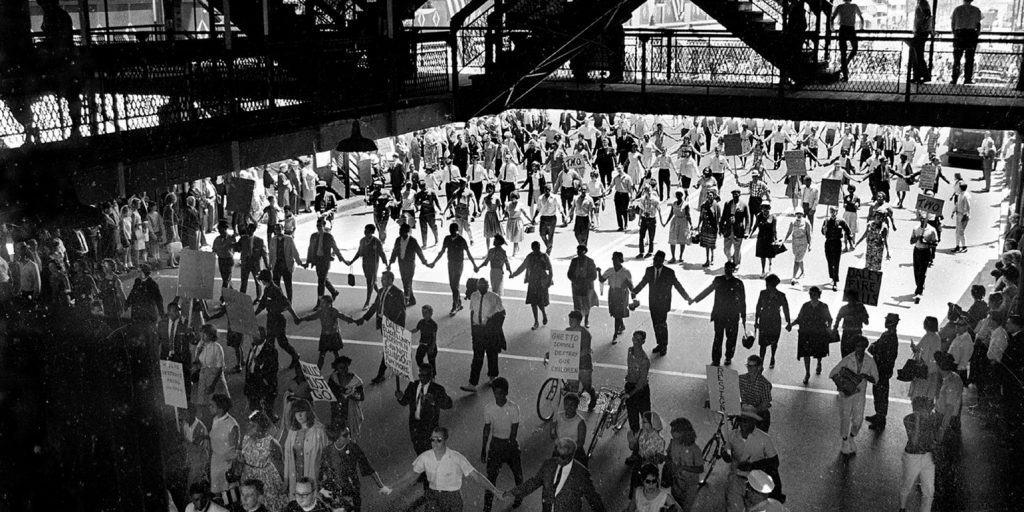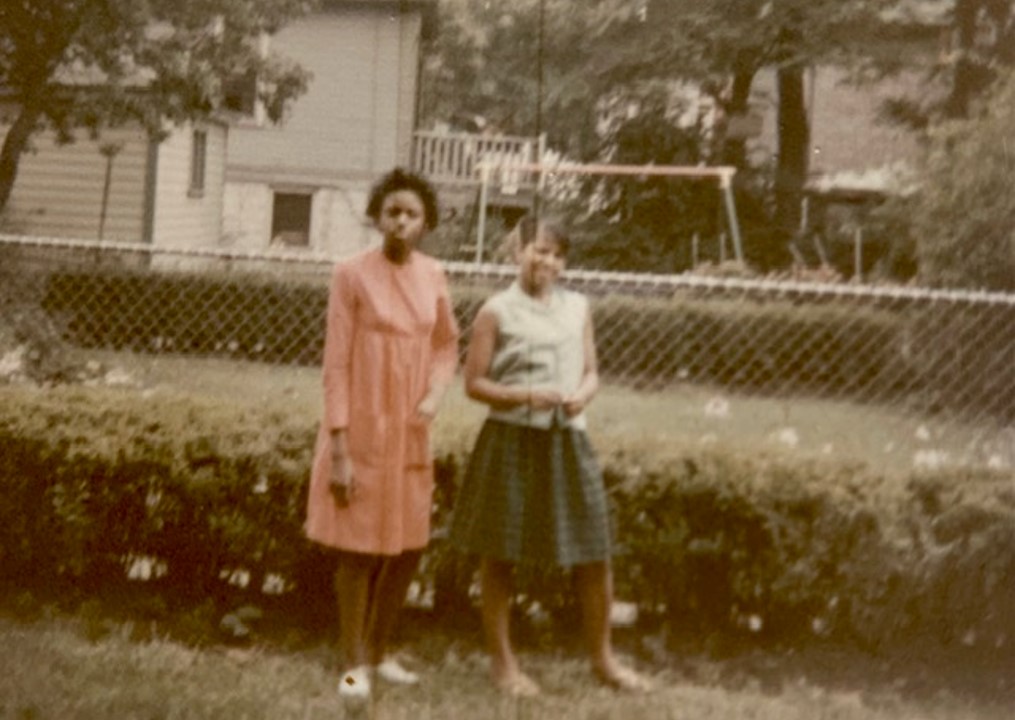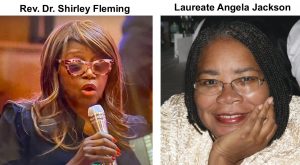Poet Laureate
 Shirley’s Story
Shirley’s Story
Rev. Dr. Shirley Gwendolyn Eloby Fleming is a long-time advocate for equity and social justice in health and human services. She has dedicated more than thirty years of her public health career to working locally and nationally as a provider, administrator and advocate to assure that all people, especially those who are disadvantaged, have the opportunity to enjoy the highest level of health and engagement in human society. This includes being able to develop their God-given gifts and talents. Prior to retirement, she operated as the second ranking public health officer for the City at the Chicago Department of Public Health. Dr. Fleming is ordained in the United Church of Christ.
I was a 12-year-old African American girl attending the neighborhood parochial school. It was the 1960s, and I was preparing for entry into the 9th grade, high school. I loved learning and being at school. My parents enrolled me in the school because the local public school was overcrowded and only offered half-day school. They were determined to provide me with the best education a laborer and housewife could buy. They believed that God had a purpose for my life and that a quality education was my ticket to fulfilling my purpose.
»Listen It was a time of racial and civil unrest in Chicago. Our neighborhood was a community of African Americans who had migrated from the South in search of the promised land and freedom from the Jim and Jane Crow laws of the Deep South. These laws promoted and upheld black people being treated as less than the Imago Dei of our Christian scriptures.
 ROBERT ABBOTT SENGSTACKE/GETTY IMAGES
ROBERT ABBOTT SENGSTACKE/GETTY IMAGES
The neighbors who settled in my community were primarily a religious group who attended the local Baptist church. Every child belonged to the neighbors, so it was not uncommon to be corrected, affirmed and redeemed by the encouraging words of biblical scriptures.
On October 22, 1963, 225,000 students boycotted Chicago’s public schools to protest racial segregation and unequal conditions in white and black schools. Many marched through the city, calling for the resignation of School Superintendent Benjamin Willis. I was aware of the injustice. I felt hurt and angry. My parents discussed it with me, but I never thought it would come to my front door.
We ran home to open our letters…
As was the custom, students who plan to attend high school take entrance examinations at the schools of their choice in January. The principal of my school advised my best friend and me to take the exam at a parochial college preparatory school. We were her top two students. With our parents, we took her advice, hoping we would both be accepted and enrolled in the school’s Fall semester.
In anticipation of receiving our acceptance letters, my friend and I ran home to open our letters from the school. Both letters said: “Unfortunately, you have not scored high enough to be accepted for the next school year. Your capacities suggest that you are better suited for a vocational school.” »Listen Tears began to roll down my cheeks as I read the words of denial and non-acceptance. This was not what I expected. It was not what my parents or neighbors expected to hear. I struggled to understand why we were denied entrance to the school.
Some of the questions I asked my parents and teachers were: How could I fail the test? Did I really fail the test? If our principal was right about our knowledge, why was I rejected? Wasn’t I good enough? Was it because of my skin color? How could a religious institution be racist?
We shared the results with the nun, who was our principal. She immediately said, “This cannot be correct. You are two of my best students. You’ve been testing high on standardized tests.” She requested and was given permission to retest us. The results showed that we could do 10th and 11th-grade level work. She reported her results to no avail. We were accepted and enrolled in another parochial college prep high school.
Grace, Wisdom and Faith
»Listen My heart was broken by the injustice of being excluded so unfairly, and it was only through Grace and the wisdom and faith of my parents and godmother that I came through it stronger. They reminded me of who I was and who we are as African Americans.
They showed me the following scriptures to reassure me of God’s Grace and love:
“So God created humankind in his image, in the image of God he created them…” (Genesis 1:27 NRSV).
“For it was you who formed my inward parts; you knit me together in my mother’s womb. I praise you, for I am fearfully and wonderfully made. Wonderful are your works; that I know very well” (Psalm 139: 13-14 NRSV).
“There is no longer Jew or Greek, there is no longer slave or free, there is no longer male and female; for all of you are one in Christ Jesus” (Galatians 3:28).
They also reminded me of a favorite song that I’d learned in Sunday School.
»Listen Jesus loves me, this I know, for the Bible tells me so. Little ones to Him belong. They are weak, but He is strong! Yes, Jesus loves me. Yes, Jesus loves me. Yes, Jesus loves me. The Bible tells me so!” (Yes, Jesus Loves Me by Star)
Then we all started singing it while sitting around the kitchen table. I felt so much better.
This faith gave me the hope and courage I needed to confront systems of oppression that said that I and others who share my social location were incapable or less than who God said we are as a people, kissed by nature’s sun.
This hope and courage carried me through many doors that society and systems of oppression had closed for people of color born into financial poverty and spiritual wealth. It gave me the privilege of education, positions and relationships that allowed me to fulfill my purpose as a Pastoral Midwife who labors with the oppressed and witnesses and celebrates new birth and liberation. Thanks be to God!
“Be thankful in all circumstances, for this is God’s will for you who belong to Christ Jesus” (1 Thessalonians 5: 18).
As for my friend, she became the Poet Laureate for the State of Illinois, further proof that no system of oppression can stop the good plans of God!
» Listen to Angela Jackson, Poet Laureate of Illinois, read “Giving Thanks.”
What do you think?
Shirley’s story showed the grace of generational resilience as her parents covered her with love and surrounded her with God’s truth and the power of advocacy as the nun used her agency to speak up for the girls and connect them with other opportunities. Injustice got a poke in they eye by the end of the story, with a Poet Laureate and a Public Health leader emerging from this discrimination! Consider Jeremiah 29:11:
“For I know the plans I have for you, declares the Lord, plans to prosper you and not to harm you, plans to give you hope and a future. This is not just about salvation but about the here and now.”
And let’s not forget that Jesus was a social activist with an agenda for life on earth. In Luke 18:7-8, Jesus says, “And will not God bring about justice for his chosen ones, who cry out to him day and night? Will he keep putting them off? I tell you; he will see that they get justice, and quickly.” But this will not happen through God waving a magic wand. We are agents of God’s Kingdom. We need to play an active role in advancing this realm of peace and justice on earth “as it is in heaven.” Humans are made in the Imago Dei—the image of God. Not to just be the image of God but to be active in the image of God as well. And anything that damages or hurts this “image” needs to be confronted and changed. Life on earth matters. God wants human beings to flourish now–body, mind and spirit. This is the social dimension of grace, and it calls us to be agents of change to grow our shared humanity.
Some questions for your conversation:
∇ How does this story resonate with experiences that you have had in your own life?
∇ Where did you see life and love at work in Shirley’s story and what difference did it make?
∇ How does your faith community provide the kind of loving protection that Shirley experienced from her family and neighbors?
∇ What are the privileges of power and agency that you have that you could use to advocate for justice, as the nun did on behalf of the girls in the story?
∇ What are ways that we can ensure that the Imago Dei–Image of God–in each person is upheld and celebrated? How far are we willing to go to affirm and protect those rights for all God’s people?
∇ Historical and generational trauma gets into our genetic and hormonal systems and gets passed down. And love and resilience and hope also get under our skin. How can our rituals and faith practices help reinforce the leading causes of life for our selves, our congregations, and our communities?
If you’d like to hear what others are thinking…
Here are some reflections on Shirley’s story from students at McCormick Theological Seminary in 2022, facilitated by Stacy Williams.





